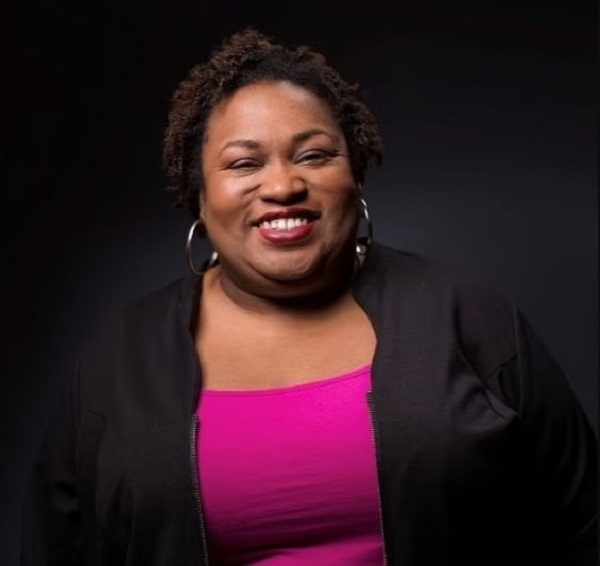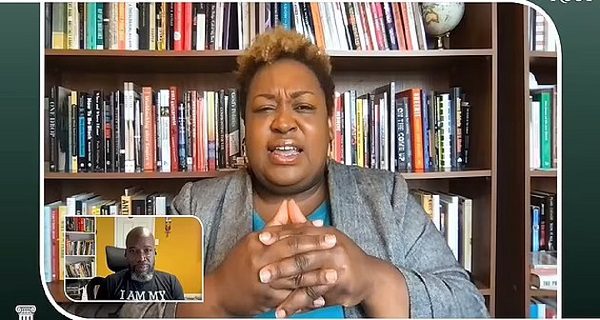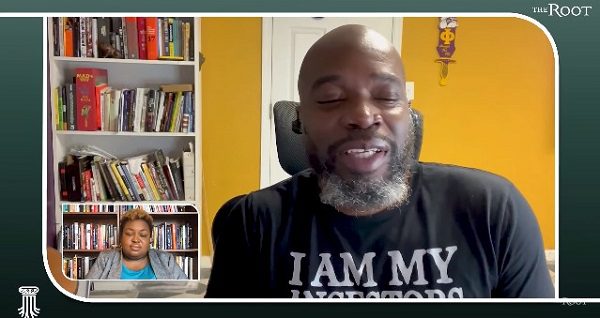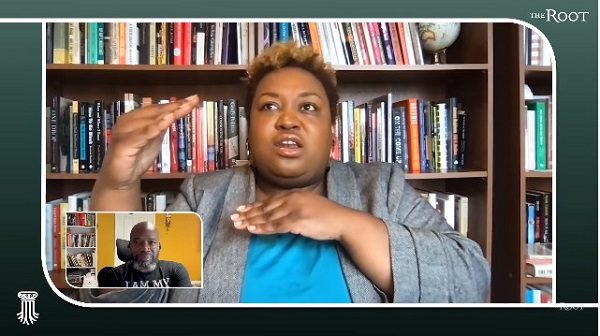Brittney Cooper, 41, a professor at Rutgers University, made the shocking comment during an online discussion with The Root’s Michael Harriot titled Unpacking The Attacks On Critical Race Theory.

She started by saying on the topic: ‘Kids actually can grasp Critical Race Theory because the issue that the right has, is that Critical Race Theory is just the proper teaching of American history.’ She said the accurate portrayal of history was the white people ‘didn’t discover America’ because there were already indigenous people and that they had ‘committed acts of violence in order to make yourselves seem superior.’ Cooper added:
It’s not that white people don’t know what they have done,’ presumably referencing slavery, which was abolished in 1865 after a nearly 300-year-long stint of being legal.
They fear that there is no other way to be human than the way in which they are human’ noting that whenever she speaks to a white person they write off ‘all of this power’ as merely a part of ‘human nature’.

Cooper continued: ‘They do this thing where they say that how white people have done humanity – how they have acted like human beings – is the way all of us act. So they think black people are going to get them back.
And I wouldn’t be mad at the black people who want to get them back but what I believe about black people is that we have seen what a sh** show this iteration of treatment of other human beings means. And my hope is that we would do it differently in the moments when we have some power.
During Cooper’s response, Harriot was seen nodding his head in agreement before asking the Rutgers professor what she thinks the other options are. He provided the options as ‘they’ – presumably lumping all white people together – ‘coming around to the majority of human beings on the planet’s way of thinking or ‘they say f*** that’ because they don’t want to relinquish said ‘power’. Cooper candidly responded:
The thing I want to say to you is, “We got to take these motherf*****s out,” but like we can’t say that,’ before noting that she ‘doesn’t believe in a project of violence’.
She shared that she also ‘thinks that white people are committed to being villains in the aggregate. She added that whiteness ‘totally skews our view of everything’ and cited a TED Talk she did on the topic back in 2016 titled The Racial Politics Of Time. According to a synopsis, the speech ‘broke down the subject of racism and its passage through the history of America’.

Cooper – a graduate of Howard University in Washington, DC – went on to elaborate on ‘white colonialism’ and said it is her job to help ‘get to the other side of this very inconvenient apoca(lyptic)-interruption of black and indigenous world-making. She then asked:
Does that give people comfort on the day-to-day when you’re just having to deal with white folks and the travesties that they create in the sense that they want to destroy the planet?
‘Nah,’ Cooper said in response to her own question. ‘Despite what white people think of themselves they do not define the laws of eternity,’ she added when theorizing about when whiteness, which she called an ‘inconvenient interruption’ in history, will end.
Their projects are not so sophisticated’ she added, noting that she ‘showed up’ in this point of history ‘precisely so that we could help to figure out an end and a way to the other side of this gargantuan historical tragedy that is white supremacy.

Cooper also said that ‘white people’s birth rates are going down’
Rutgers University has yet to comment on Cooper’s statements. After a look at her social media, it is evident that Cooper keeps her personal life out of the public eye. It is unclear if she is in a relationship or has children. But she did carve out time in the segment to discuss white people having children. She said:
White people’s birth rates are going down…because they literally cannot afford to put newer generations into the middle class. They kind of deserve it. That’s why white people are afraid of us. Until they need us.
Kw Brittany Cooper ended the segment circling back to CRT, saying that it helps black people ‘reclaim our own heritage, our own power, our own sense of the ways that our life-giving strategies’.
